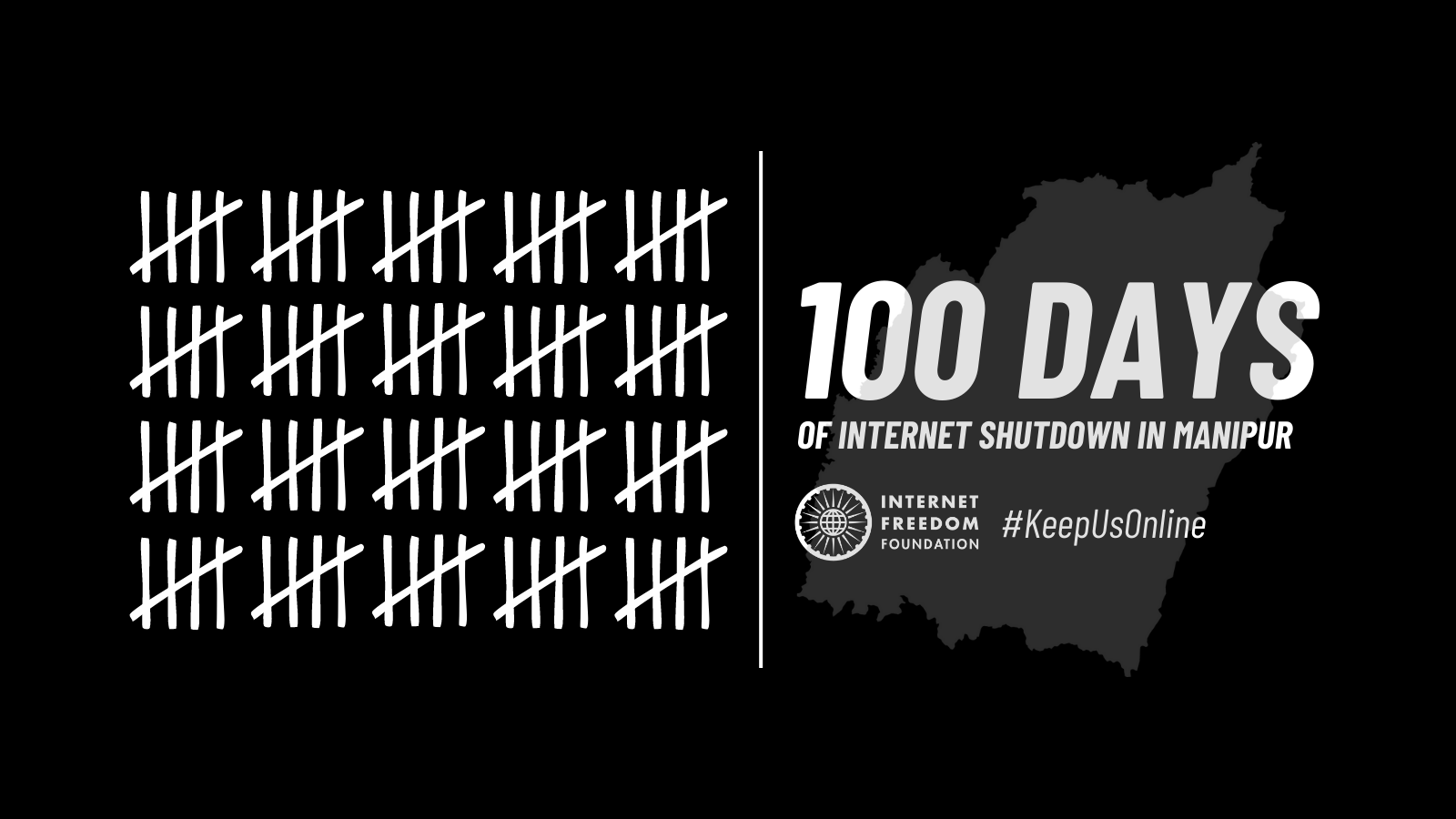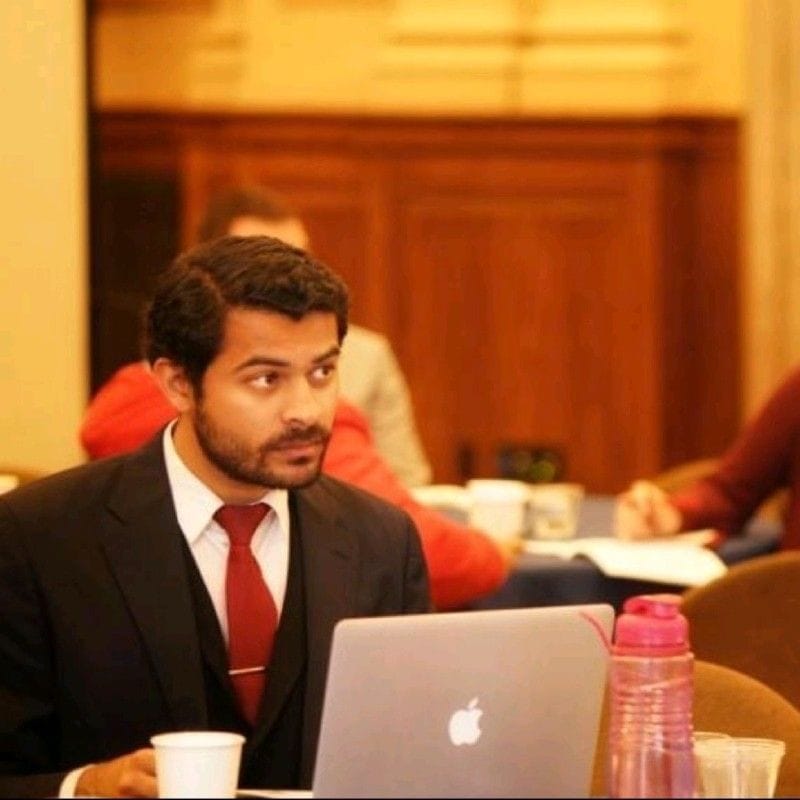
August 11, 2023
100 Days. Today, August 11, 2023, marks 100 days of Manipur’s descent into a state-wide internet shutdown. We, at IFF, are deeply saddened and perturbed by the state of affairs and how the citizens of Manipur are being deprived of their basic human rights. It contributes to the propagation of misinformation without any means for verification and hinders the accountability process for human rights violations.
The suspension of internet access, which was imposed on May 3, 2023, was narrowly lifted on July 25, 2023, only in the case of broadband services (internet leased line and fibre to the home), even though broadband constitutes just 3% of all internet connections in India. What is quite alarming is the absence of an end date in the July 25 order which effectively makes the suspension indefinite in nature. This makes the order prima facie illegal as it violates Rule 2(2A) of the Telecom Suspension, 2017, as amended in 2020, after the Supreme Court in Anuradha Bhasin v. Union of India noted that any restrictions on internet services must be temporally and geographically limited. Rule 2(2A) states that no internet suspension order shall be in operation for more than fifteen days.
Further, this partial restoration of internet services comes attached with several conditions, and mobile data services remain suspended. ISPs have been directed to ensure the continued blocking of social media websites and VPNs at the local level even for broadband users. Physical monitoring for checking violation of terms and conditions may also be undertaken by the law enforcement authorities.
A vast majority of the residents of Manipur remain without any access to the internet, and such disproportionate terms and conditions cannot be considered to be the least restrictive measure as per the doctrine of proportionality propounded in Anuradha Bhasin v. Union of India. Access to healthcare, education, banking facilities, and livelihood, are all impacted. The economy also suffers drastically. Access to government welfare schemes, which are dependent on the internet, is also impeded. For instance, a joint report by Human Rights Watch and IFF on the human impact of internet shutdowns documented how workers dependent on rural employment guarantee schemes, lost wages as they were unable to mark their attendance on a government app due to internet suspension.
The only procedural safeguard afforded by the Telecom Suspension Rules against internet shutdowns is in the form of a Review Committee, headed by the State’s Chief Secretary, which must meet and determine the legality of the internet shutdown orders. Disappointingly, there is no record of Manipur’s Review Committee ever meeting or considering even one of the several subsequent internet shutdown orders that have been routinely passed by the Home Department of the Manipur Government.
Moreover, in the past few weeks, a bone-chilling video has emerged from Manipur that has shattered the apathy and silence surrounding the longest internet shutdown in the country in 2023. Action was taken against the perpetrators involved only after the video generated explosive anger across the public. This information blackhole caused by the internet shutdown has not only had a negative impact on individuals’ right to access information and communicate freely, but has also obstructed people outside Manipur from being aware of the ground realities and violence that is taking place in the state. The consequent information disorder and absence of internet access also throttles voices, especially those of marginalised communities, and takes away their ability to document the violations they have faced.
These egregious violations of human rights and the shocking contempt for Supreme Court’s ruling in Anuradha Bhasin v. Union of India are concerning. It reveals a pattern of paternalistic governance transpiring in the country while attempting to obscure the government’s failures in preventing law and order problems. In such dark times, IFF expresses its unwavering support for the victims and reaffirms its dedication to championing the defence of digital rights as well the ethical utilisation of technology.
Prateek Waghre
Policy Director
Tanmay Singh
Senior Litigation Counsel
For press queries, please contact Tanmay Singh at [email protected].


